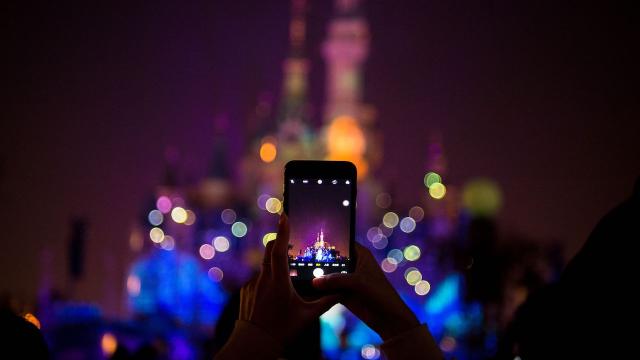Shanghai Disneyland will close its gates in an effort to stop the spread of a new SARS-like virus that has killed 26 people and sickened at least 881, primarily in China. It’s not known when the theme park may reopen.
Disney’s Shanghai location, which first opened in 2016, is the only Disney park in mainland China. Hong Kong Disneyland is still open, despite two confirmed cases of the 2019-nCoV coronavirus in that region, and plans by Hong Kong authorities to turn some vacation campsites and military barracks into quarantine zones.
“In response to the prevention and control of the disease outbreak and in order to ensure the health and safety of our guests and Cast, Shanghai Disney Resort is temporarily closing Shanghai Disneyland, Disneytown including Walt Disney Grand Theatre and Wishing Star Park, starting January 25, 2020,” Disney said in a statement on its website.
“We will continue to carefully monitor the situation and be in close contact with the local government, and we will announce the reopening date upon confirmation.”
Disney’s Shanghai Resort said that it would refund tickets to the park and any hotel bookings. Disney owns and operates two hotels at Shanghai Disneyland.
The decision to close Shanghai Disneyland comes at the busiest time of the year, when China’s population of 1.42 billion people are celebrating the Lunar New Year and hundreds of millions travel for the week-long celebration. The cities of Beijing, Wuhan, Zhejiang, and Macau have cancelled their Lunar New Year celebrations this weekend, the equivalent of cancelling Christmas celebrations in the U.S.
The Chinese government announced on Friday that sections of the Great Wall near Beijing would be closed starting on Saturday and McDonald’s said it would suspend business at five restaurants in Hubei province, which also contains the city of Wuhan, the suspected source of the outbreak.
Roughly 33 million people are on lockdown in at least 10 cities within Hubei province. Plane and train travel have been stopped from those 10 cities and travel by car has been tightly restricted. At least seven movies in China have had their theatrical release delayed in an effort to keep people out of crowded places like movie theatres.
There have so far been confirmed cases of the virus in the U.S., Australia, Japan, South Korea, Thailand, Vietnam, Singapore, Hong Kong, and Taiwan.
The only case in the U.S. so far has been in Washington State and five airports are conducting health screenings of passengers arriving from China in conjunction with the Centres for Disease Control (CDC): Atlanta’s Hartsfield-Jackson International, Chicago’s O’Hare International Airport, San Francisco International Airport, Los Angeles International Airport, and John F. Kennedy International Airport in New York.
John Hopkins University created an online tracker that’s updated daily with the most recent figures and the World Health Organisation (WHO) declined to designate the outbreak as a “public health emergency of international concern,” abbreviated as PHEIC, on Thursday.
WHO warns that this is certainly an emergency for China, but has hesitated to call it an international emergency since all of the 26 deaths and most of the illnesses have been within China’s borders. WHO’s emergency panel of experts could reconvene at any time if the situation changes.
